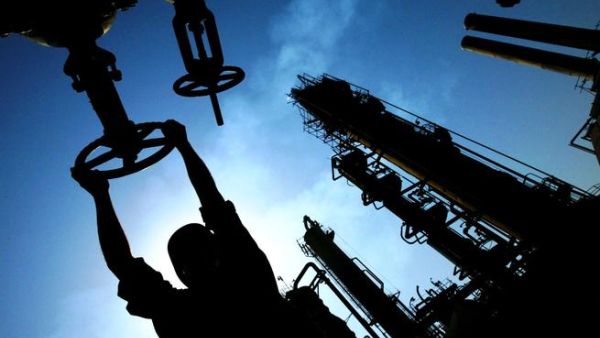The government of Abu Dhabi created IPIC to leverage the energy expertise embedded in the Abu Dhabi Investment Authority, or ADIA, the largest sovereign wealth fund in the Middle East and Adnoc, with its network of joint ventures with the world’s leading energy supermajors.
Abu dhabi’s International Petroleum Investment Co, or IPIC, one of the Gulf’s leading oil and gas multinational corporations, was founded by the late UAE President Shaikh Zayed bin Sultan Al Nahyan in 1984 to invest in energy upstream/downstream projects worldwide from exploration and production, pipelines refining, trading shipping, crude oil, natural gas.
The government of Abu Dhabi created IPIC to leverage the energy expertise embedded in the Abu Dhabi Investment Authority, or ADIA, the largest sovereign wealth fund in the Middle East and Adnoc, with its network of joint ventures with the world’s leading energy supermajors.
IPIC made global headlines when it acquired a 24.9 per cent strategic stake in Austria’s OMV, the largest oil and gas firm in Central Europe and the most valuable company on the Vienna Stock Exchange. The Austrian equity stake was truly transformational, since OMV produced 303,000 barrels a day, has proven reserves of 1.12 billion barrels of oil equivalent and a refining capacity of 22 million tonnes. OMV also a crucial pipeline network that ships Russian gas to Western Europe and owns Turkey’s Petrol Ofisi and a refinery in Bavaria, Germany. IPIC also owns a 100 per cent stake in Spanish oil and gas firm Cepsa. IPIC also has a majority stake in Borealis, one of the world’s leading petrochemical producers that has established a joint venture with Adnoc.
Japan has been one of the UAE’s key trading partners and energy clients since the birth of the Federation. In fact, Abu Dhabi’s decision to price its crude oil and natural gas exports via long term guaranteed price and supply contracts help immunise the Japanese economy from oil shocks and the fluctuations in the world spot markets. A key component of the relationship is IPIC’s 20 per cent stake in Cosmo Oil, Japan’s largest oil refining and marketing firm. Japan is now the largest importer of crude from Adnoc, a relationship that is anchored by oil concessions in Abu Dhabi and the IPIC stake in Cosmo Oil.
IPIC has played a strategic role in the energy infrastructure of the UAE. The Fujairah Refinery Complex will transport Abu Dhabi crudes via pipeline and bypass the Straits of Hormuz, to the northern UAE emirates Deepwater oil export terminals on the Arabian Sea. The Abu Dhabi pipeline will collect onshore crude from ADCO’s field in Habshari to Fujairah, making it the longest pipeline in the UAE. This $6 billion project will reinforce Fujairah’s role as the leading bunkering port in the Middle East (and global number two after Singapore) as well as process 200,000 barrels of Abu Dhabi’s crude , primarily to produce middle distillates for exports and bunker fuel.
Emirates LNG is a 50 per cent joint venture between IPIC and Mubadala that will build a LNG regasification hub in Fujairah. Gulf Energy Marine (GEM) where IPIC owns a 30 per cent stake with ENOC, Oman Oil and Thales, builds and managers a fleet of double hall crude oil, LNG and chemical tankers. Gulf Energy Marine is now the leading independent tanker owner in the Middle East, prominent in the world spot/charter tanker shipping markets.
IPIC’s Aabar Investments invests in some of the world’s leading multinational bands, from Daimler to Unicredito. IPIC also owns stakes in trophy regional energy assets, from Egypt’s Sumed pipeline to Pakistan’s largest refinery to energy private’s equity funds with Kazakhstan.
IPIC delivered $26 billion in revenues in the first half of 2013 and an operating income of $1.42 billion, making it one of the largest, most profitable joint stock companies in the UAE. As significantly, IPIC’s corporate credit is rated at AA by S&P and Fitch, Aa3 by Moodys. IPIC’s balance sheet leverage has also fallen since it repaid its $2 billion debt in September 2013. IPIC had taken out this $2 billion loan from a global syndicate of banks in 2011 to finance a stake in Malaysian investment bank RHB Capital, a stake previously held by Abu Dhabi Commercial Bank, or ADCB.
The divestment of its RHB Capital stake enabled ADCB to boost its capital base at a time of stress in the UAE banking systems after the 2009-10 property crash. This strategic deal with Abu Dhabi’s second largest bank enabled ADCB to post a $357 million profit on its Malaysian bank stake and was a key factor in its subsequent restructuring.
IPIC has also formed a joint venture with the Oman Oil Company, or OCC, to build and manage a refinery and petrochemical complex in the sultanate. The Duqn Refinery and Petrochemicals Industries project, where IPIC will own a 50 per cent equity stake, will build a 230,000 barrel a day capacity refinery that will be crucial for the development of Oman’s downstream energy sector.
Like the Dolphin Project, IPIC’s Duqn refinery joint venture is another example of a major intra-GCC energy project made possible by Abu Dhabi’s high sovereign credit rating, oil wealth, technical expertise and strategic interest in promoting GCC economic integration.
By: Sarie Khaled
The writer is a Dubai-based research analyst in energy and GCC economics.








